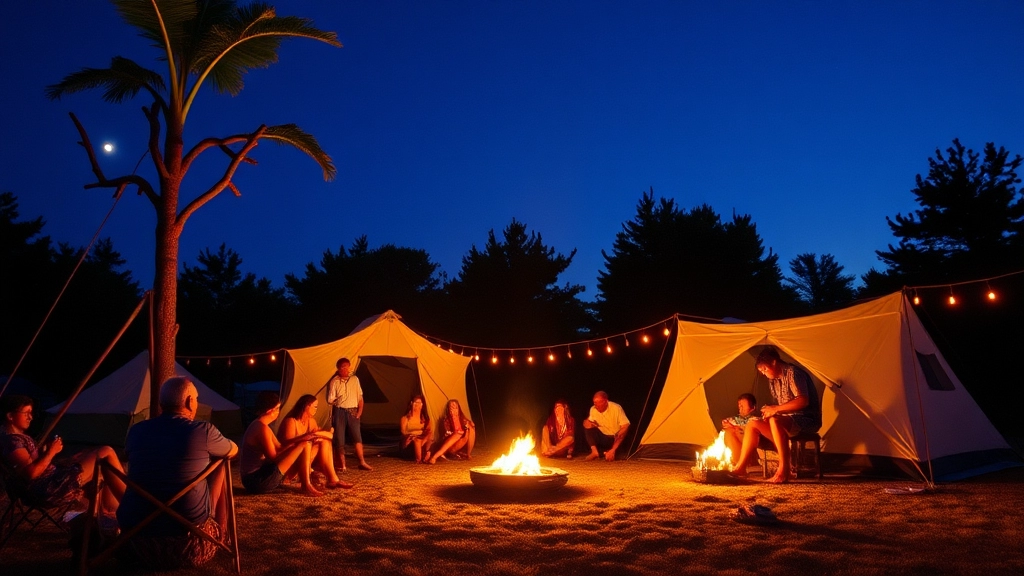Sex In Summer Camp: Myths and Realities
Alright, let’s get real. When it comes to summer camps, “Sex In Summer Camp” is a topic fraught with myths, misconceptions, and genuine concerns. This article aims to debunk common myths, shed light on the reality of sexual activities in camps, and explore how camps address sexual education and awareness. We’ll also delve into the crucial role of counselors, the policies in place, and how camps manage peer pressure and group dynamics. Plus, we’ll touch on the legal responsibilities of camps and share strategies for promoting safe and respectful behavior.
Parental Concerns
Parents often wonder if their child is safe and how camps handle sexual behavior. This article provides insights into parental concerns, the importance of open communication, and the measures camps take to ensure a safe environment. From the vigilance of trained counselors to the enforcement of strict policies, we cover it all. By the end, you’ll have a comprehensive understanding of how summer camps strive to create a safe, fun, and respectful experience for all campers. Let’s dive in and separate fact from fiction.
Common Myths and Misconceptions About Sex in Summer Camps
Alright, let’s get real. Summer camps are a rite of passage for many kids and teens, but there’s a lot of chatter that can make parents and even campers a bit uneasy. So, let’s dive into some of the myths and misconceptions about sex in summer camps.
Myth #1: Summer Camps are Hotbeds for Sexual Activity
You might’ve heard the whispers or seen the dramatic movies where summer camps are depicted as wild, unsupervised zones. But here’s the truth: most camps have strict rules and vigilant staff. Sure, teens are curious, but camps are designed to keep them busy with activities, not secluded in cabins. For a deeper look into how camps keep kids engaged, check out our Summer Camp Schedule: Activities & Themes Guide.
Myth #2: Counselors Turn a Blind Eye
The idea that camp counselors are just there to have fun and don’t pay attention to what campers are doing is way off base. Counselors are trained professionals who take their roles seriously. They’re like the older siblings you never had, always keeping an eye out and stepping in when needed. Learn more about what makes a great camp environment in our Abess Summer Camp: Fun Activities and Safe Environment.
Myth #3: It’s All About Hookups
Some folks think summer camp is just one big dating scene. While friendships and crushes do happen, most kids are there for the activities, the friendships, and the memories. Camps focus on creating a safe environment where kids can grow and learn, not just flirt.
Myth #4: Parents Have No Control or Insight
Many parents worry they’re sending their kids into the unknown. But most camps have open lines of communication. Regular updates, photos, and even video calls are common to keep parents in the loop. Plus, many camps offer detailed guidelines about their policies on sexual behaviour, so you know exactly where they stand.
Let’s Talk Real Concerns
Parents often ask, “Is my child safe?” or “What if they get pressured into something?” These are valid questions. Camps address these concerns head-on through robust policies and education. They aim to create an environment where kids feel safe and respected.
Breaking Down the Myths
Let’s break it down into simple points:
- Strict Rules and Supervision: Camps have rules and staff to enforce them.
- Trained Counselors: These folks are trained to manage and guide campers.
- Focus on Activities: The main goal is fun and learning, not romance.
- Parental Communication: Camps keep parents informed and involved.
Real Stories, Real Insights
Imagine this: You’re at a campfire, and a counsellor starts sharing stories about past campers. They talk about the friendships formed, the skills learned, and yes, the occasional crush. But the focus is always on growth and safety. That’s the real camp experience.
The Reality of Sexual Activities in Summer Camps
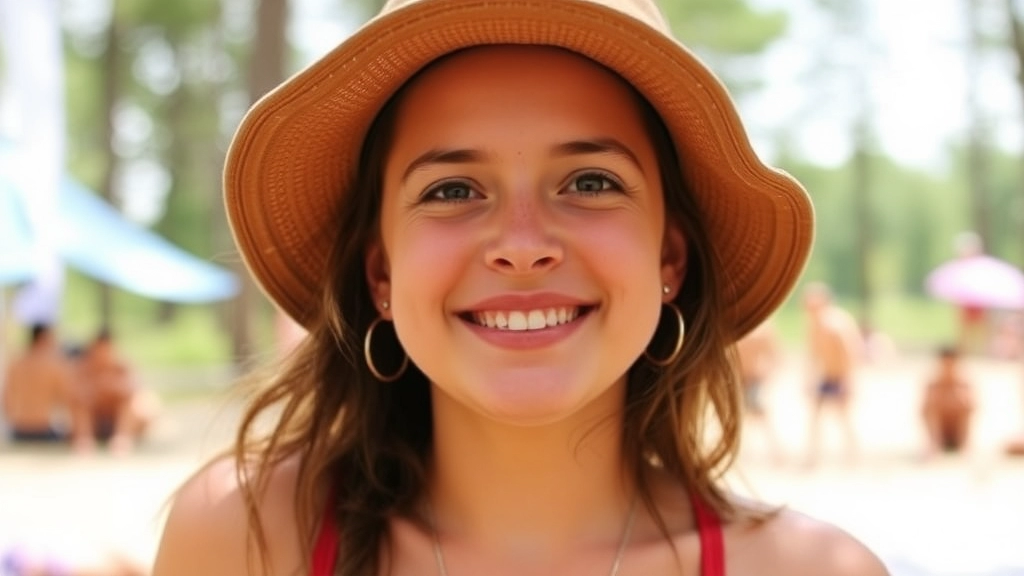
Alright, let’s get real.
When we think about summer camps, we picture campfires, canoeing, and s’mores. But there’s another side to it that parents worry about – sexual activities in summer camps.
So, what’s really going on?
What Actually Happens
First off, yes, sexual activities do happen at summer camps. It’s not as rampant as some myths suggest, but it’s there. Kids are curious, and when you put a bunch of teenagers together, hormones can run wild.
Real Stories, Real Concerns
I’ve heard stories from camp counsellors and former campers. Some talk about sneaking off during free time. Others mention late-night rendezvous. It’s not every kid, but it happens.
The Environment
The camp environment can be a breeding ground for these activities. Think about it – you’re away from home, there’s a sense of freedom, and you’re surrounded by peers. Add in the lack of supervision at times, and it’s a recipe for experimentation.
The Numbers
While there’s no exact data, studies suggest that a small percentage of campers engage in sexual activities. It’s not an epidemic, but it’s significant enough to be on the radar.
Peer Pressure and Group Dynamics
Peer pressure plays a huge role. Kids want to fit in, and sometimes that means doing things they’re not ready for. Group dynamics can push kids into situations they wouldn’t normally find themselves in.
Keeping It Real
So, what can we do about it? First, acknowledge that it’s a reality. Ignoring it won’t make it go away. Second, open up the conversation. Talk to your kids about boundaries, respect, and safe behaviour.
Bullet Points for Quick Tips
- Be Honest: Have straightforward talks with your kids about sex and relationships.
- Set Boundaries: Make sure they know what’s acceptable and what’s not.
- Stay Informed: Know the camp’s policies on sexual conduct.
- Encourage Openness: Let your kids know they can come to you with any concerns.
How Summer Camps Address Sexual Education and Awareness
Real Questions and Concerns
Let’s be realâparents and teens alike worry about what goes on at summer camps. Is there enough sexual education? How do camps handle these sensitive topics? These are the real questions we need to tackle.
The Reality Check
At summer camps, sexual education and awareness are crucial. But how do they actually address it? It’s not just about having “the talk.” Camps are getting smarter, more proactive, and frankly, more effective.
Education Strategies
Camps use a variety of strategies to educate and raise awareness:
- Workshops and Seminars: Interactive sessions that cover the basics and beyond. Think consent, respect, and safe practices.
- Open Discussions: Creating a safe space where campers can ask questions without judgment.
- Resource Materials: Pamphlets, videos, and online resources that campers can access anytime.
Role of Camp Staff
Counselors are trained to handle these topics with care. They’re not just there to superviseâthey’re mentors:
- Training Programs: Counselors undergo specialised training to manage discussions about sexual education.
- Role Models: By demonstrating respectful behaviour, they set the tone for campers.
Policies and Guidelines
Camps have strict policies to ensure everyone’s safety:
- Clear Rules: Guidelines about what is acceptable and what isn’t are communicated upfront.
- Zero Tolerance: Any breaches of conduct are dealt with immediately.
Parental Involvement
Parents want to know what’s being taught. Camps often:
- Send Newsletters: Keep parents updated on educational topics covered at camp.
- Offer Workshops: For parents to understand how they can continue the conversation at home.
Peer Pressure and Group Dynamics
Let’s not ignore the elephant in the roomâpeer pressure. Camps address this by:
- Team Building Activities: Encouraging positive group dynamics.
- Leadership Programs: Empowering campers to make their own informed decisions.
Legal Implications and Responsibilities
Camps have a legal responsibility to provide a safe environment. They ensure:
- Compliance with Laws: Adhering to regulations about sexual education and conduct.
- Regular Audits: To ensure policies are being followed.
Promoting Safe and Respectful Behaviour
It’s all about creating a culture of respect:
- Positive Reinforcement: Rewarding good behaviour.
- Role-Playing Scenarios: Helping campers practice real-life situations.
Resources for Further Information
For those wanting to dive deeper, camps provide:
- Access to Online Platforms: Where campers and parents can find more information.
- Contact Information for Experts: For personalised advice and support.
For more tips on how to ensure a safe and enriching camp experience, check out our guide on volunteering at summer camps and learn about the importance of summer camp insurance.
The Role of Counselors in Managing Sexual Behavior
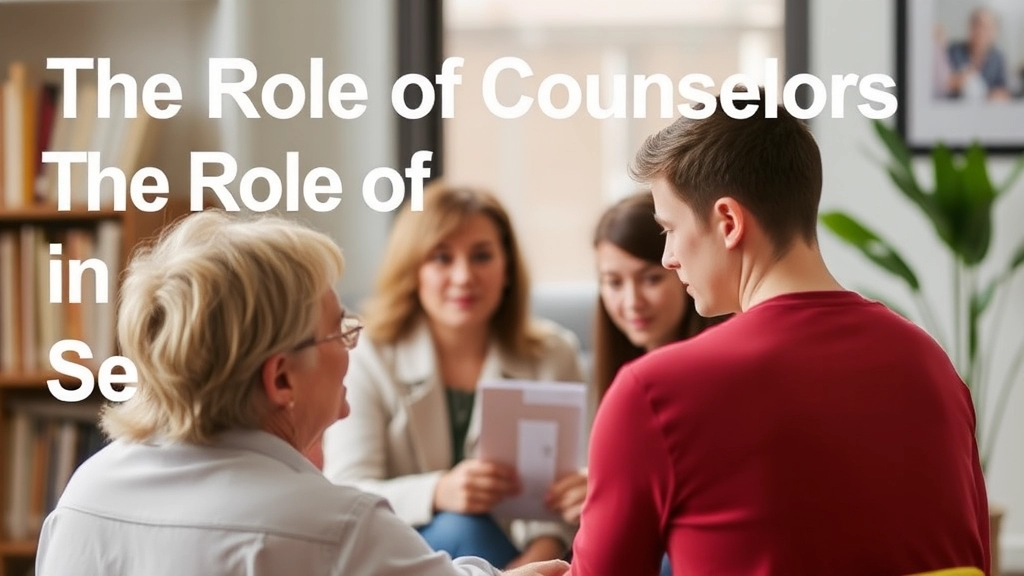
Alright, let’s get real.
What do you, as a parent, worry about when sending your kid to summer camp?
Safety, right?
Especially when it comes to sexual behaviour.
Now, let’s dive into how counselors play a crucial role in managing this.
The Frontline Defenders
Counselors are the frontline defenders of camp safety.
They’re not just there to lead activities and sing campfire songs.
They’re trained to handle all sorts of situations, including sexual behaviour.
Here’s how they do it:
- Observation: Counselors are always observing. They keep an eye out for any inappropriate behaviour.
- Education: They educate campers on boundaries and consent. This is crucial.
- Intervention: If they see something off, they step in. No hesitation.
Real Talk and Training
Counselors go through extensive training.
We’re talking about workshops, role-playing scenarios, and even real-life case studies.
They learn:
- Signs of inappropriate behaviour: Knowing what to look for.
- Communication skills: How to talk about sensitive topics without making it awkward.
- Conflict resolution: How to defuse situations before they escalate.
Setting the Tone
Counselors set the tone for the entire camp.
They model respectful behaviour.
They create an environment where everyone feels safe.
And they make it clear: inappropriate sexual behaviour is not tolerated.
Stories from the Field
Let me share a quick story.
One counselor noticed a camper acting overly affectionate with another.
Rather than ignoring it, they had a private chat with both kids.
Turns out, one of them didn’t feel comfortable but didn’t know how to say it.
The counselor stepped in, set boundaries, and educated both kids on consent.
Problem solved.
The Buddy System
Many camps use a buddy system.
Counselors pair up campers to ensure no one is ever alone.
This reduces the chances of inappropriate behaviour.
And it builds a sense of community and accountability.
Open Communication
Counselors also keep the lines of communication open with parents.
They provide updates and address any concerns.
If something happens, you’ll know about it.
Final Thoughts
Counselors are your allies in keeping your kids safe.
They’re trained, vigilant, and proactive.
So, next time you worry about sexual behaviour at camp, remember: counselors have got it covered.
And if you’ve got more questions, don’t hesitate to ask the camp directly.
They’re there to help.
Feel better?
Good.
Policies and Rules Regarding Sexual Conduct in Camps
Alright, let’s get real. When it comes to summer camps, one of the biggest concerns for parents and camp organisers alike is how to handle sexual conduct. So, what are the policies and rules in place to keep everyone safe and comfortable?
What’s the Deal with Camp Rules on Sexual Conduct?
First off, policies and rules regarding sexual conduct in camps aren’t just there to be a buzzkill. They’re essential for creating a safe and respectful environment. Camps usually have strict guidelines that cover a range of behaviours, from public displays of affection to more serious sexual activities.
Here are some common rules you might find:
- No PDA: Public displays of affection like kissing and hugging are often limited or outright banned.
- Separate Sleeping Areas: Boys and girls usually have separate cabins or tents, and sneaking into the opposite sex’s area is a big no-no.
- Curfews and Supervision: Strict curfews and regular check-ins by counsellors help keep tabs on everyone.
- Zero Tolerance for Harassment: Any form of sexual harassment or bullying is taken very seriously and can lead to immediate expulsion.
Why Are These Rules Important?
You might think these rules are over the top, but they serve a purpose:
- Safety First: Ensuring that everyone feels safe and respected is the top priority.
- Focus on Fun: Camps are about making memories, not dealing with drama.
- Legal Protection: Camps need to protect themselves from legal issues, and having clear rules helps with that.
Real Talk: How Do Camps Enforce These Rules?
Enforcing rules about sexual conduct isn’t easy, but camps have some tricks up their sleeves:
- Counsellor Training: Staff are trained to handle situations discreetly and effectively.
- Clear Communication: Rules are clearly communicated to campers and parents from day one.
- Consequences: Immediate and fair consequences for breaking the rules help maintain order.
Stories from the Field
Let me share a quick story. A friend of mine worked as a camp counsellor and had to deal with a situation where two campers were caught sneaking into each other’s cabins. The camp had a zero-tolerance policy, and both campers were sent home. It was tough, but it sent a clear message to everyone else about the importance of following the rules.
What Can Parents Do?
Parents, you play a crucial role too. Here’s how you can help:
- Talk to Your Kids: Have an open conversation about the importance of following camp rules.
- Stay Informed: Know the camp’s policies and discuss them with your child before they leave.
- Encourage Respect: Teach your kids to respect themselves and others.
The Bottom Line
Policies and rules regarding sexual conduct in camps are there for a reason. They help create a safe, fun, and respectful environment for everyone. So, next time you’re packing your kid’s bags, make sure they understand the importance of these rules. It’s all about keeping camp experiences positive and memorable.
For more on how camps handle sexual education and awareness, check out our section on essential guidelines for safety.
Remember, it’s all about keeping it real, keeping it safe, and keeping it fun. For a comprehensive guide on what to pack, visit our ultimate packing guide.
Parental Concerns and Communication About Sexual Safety
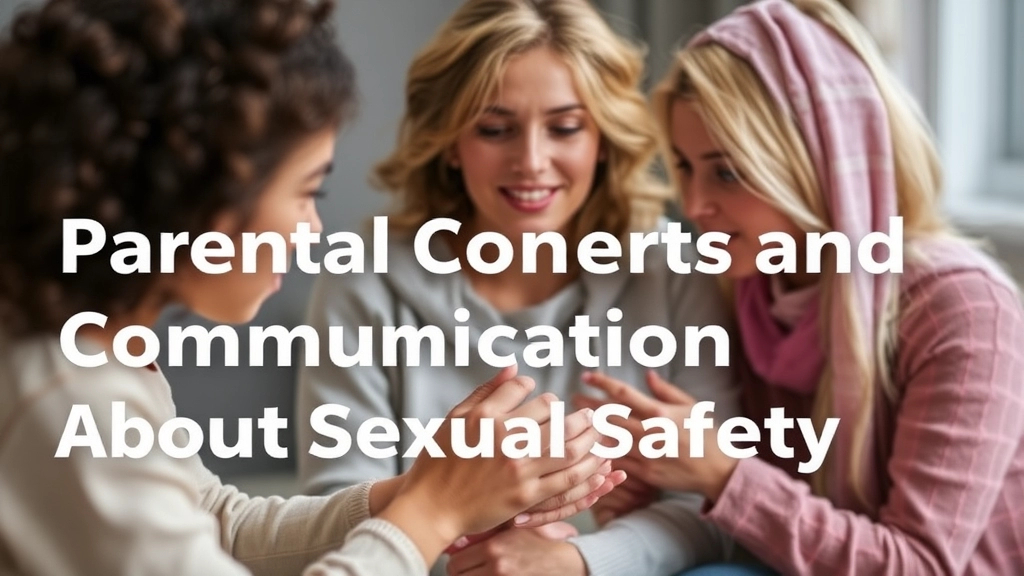
Alright, let’s get real.
Parents are worried about their kids at summer camp.
And who can blame them?
Sexual safety is a biggie.
So, how do you tackle this?
What Are Parents Worried About?
- Lack of Supervision: “Will my kid be properly watched?”
- Peer Pressure: “What if they’re pushed into something?”
- Communication Gaps: “How will I know if something goes wrong?”
Addressing These Concerns
First off, let’s talk supervision.
Camps usually have strict ratios of counselors to kids.
But, hey, it’s always good to double-check.
Ask the camp about their policies.
Next up, peer pressure.
Kids want to fit in.
It’s natural.
But this can lead to risky behavior.
Here’s where you step in.
Have the Talk
- Be Open: No need for a lecture. Just be real.
- Ask Questions: “What would you do if…?”
- Share Stories: Make it relatable.
Communication Is Key
You want to keep the lines open.
- Regular Check-Ins: Set a schedule for calls or messages.
- Encourage Honesty: Make sure your kid knows they can tell you anything.
What Camps Can Do
Camps should have clear rules.
And they should enforce them.
Policies and Rules
- No Tolerance: Zero tolerance for inappropriate behavior.
- Clear Guidelines: Everyone should know the rules.
- Training: Counselors should be trained to handle situations.
The Impact of Peer Pressure and Group Dynamics
Ever wondered how much peer pressure and group dynamics play into the sexual behaviour at summer camps? Let’s dive right in because this is a real concern for many parents and camp staff.
Peer Pressure: The Silent Influencer
Peer pressure is a big deal. It’s like that invisible force nudging kids to fit in, sometimes pushing them to make choices they wouldn’t normally make. At summer camps, this pressure can be even more intense. Kids are away from home, trying to make new friends, and often feeling the need to impress.
Here’s how peer pressure can manifest:
- Fear of missing out (FOMO): No one wants to be the odd one out. If a group is engaging in certain behaviours, others might feel compelled to join in just to belong.
- Desire for acceptance: Acceptance is a powerful motivator. Kids might engage in sexual activities because they think it will make them more popular or liked.
- Influence of older campers: Younger campers often look up to older ones. If older campers are involved in sexual activities, younger ones might feel pressured to follow suit.
Group Dynamics: The Power of the Pack
Group dynamics can amplify peer pressure. When you’re in a group, the collective behaviour often sets the tone. This can be both good and bad.
Positive group dynamics can:
- Encourage respectful behaviour: If the group values respect and consent, individuals are more likely to follow these positive norms.
- Provide support: A supportive group can help individuals resist peer pressure and make better choices.
Negative group dynamics can:
- Lead to risky behaviour: If the group is engaging in risky sexual behaviour, individuals might feel pressured to do the same.
- Create a mob mentality: Sometimes, groups can make decisions that individuals wouldn’t make on their own, leading to poor choices.
Real Talk: What Can Be Done?
So, what can we do about it? Here are some practical steps:
- Education: Camps should provide comprehensive sexual education that covers the impact of peer pressure and group dynamics. Knowledge is power.
- Open Communication: Encourage open conversations about these issues. Kids should feel comfortable discussing their worries and experiences.
- Empowerment: Teach kids to say no and stand up for themselves. Role-playing scenarios can be a great way to practice this.
- Positive Role Models: Counselors and older campers should model respectful behaviour. Kids are more likely to follow suit if they see positive examples.
For more insights on managing sexual behaviour in camps, check out our sections on The Role of Counselors in Managing Sexual Behavior and How Much is Summer Camp: A Comprehensive Guide.
Legal Implications and Responsibilities for Camps
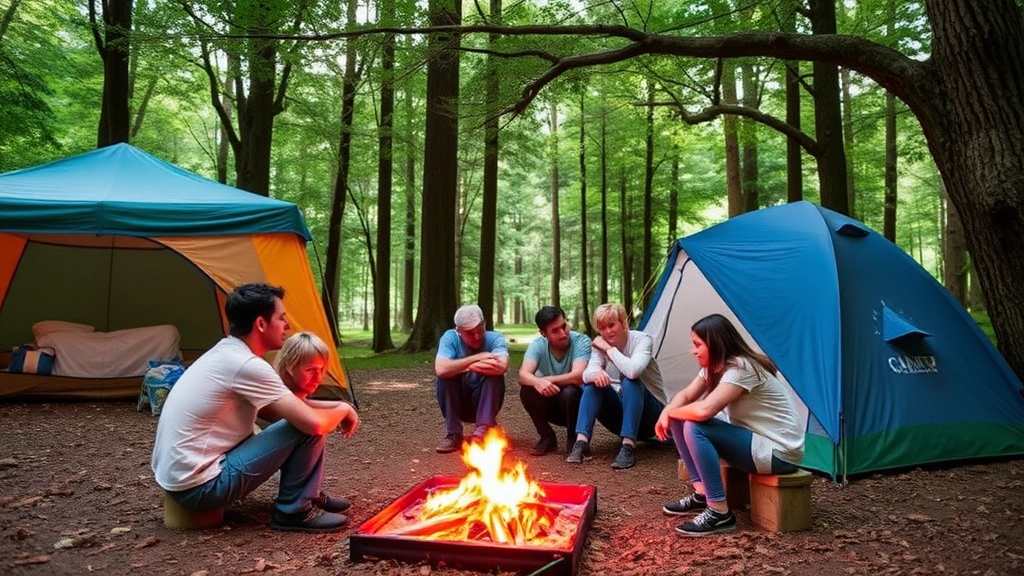
Ever wonder what happens if something goes wrong at a summer camp?
Yeah, me too.
Let’s dive into the legal stuff.
Why Legal Matters Are a Big Deal
Summer camps have a lot on their plate.
Keeping kids safe isn’t just about fun and games.
It’s about rules, responsibilities, and sometimes, legal headaches.
What Camps Need to Know
Camps need to be on top of their game.
Here’s a quick rundown:
- Consent Laws: Understanding the age of consent and what it means for activities at camp.
- Mandatory Reporting: If something suspicious happens, counselors must report it.
- Supervision: Ensuring there’s always an adult present, especially in sensitive situations.
- Training: Staff should be trained in recognising and handling inappropriate behaviour.
Stories from the Field
I once heard about a camp that faced a lawsuit because they ignored a report.
Not cool.
It’s a reminder that turning a blind eye isn’t an option.
What Parents Worry About
Parents want to know their kids are safe.
They worry about:
- Inadequate Supervision: Who’s watching the kids?
- Lack of Policies: Are there clear rules in place?
- Communication: How will they be informed if something happens?
How Camps Can Step Up
Camps can do a lot to avoid legal trouble.
Here’s how:
- Clear Policies: Have a solid set of rules about behaviour.
- Regular Training: Keep staff updated on the latest legal requirements.
- Open Communication: Keep parents in the loop.
Strategies for Promoting Safe and Respectful Behavior
Alright, let’s dive right into it. How do we keep our kids safe and respectful in summer camps? It’s a real concern for many parents, camp directors, and even the kids themselves. No one wants to deal with awkward or unsafe situations, right? So, let’s break it down.
Start with Clear Communication
First off, communication is key. Camps should kick things off with clear, straightforward conversations about what’s expected. Here’s how:
- Pre-camp meetings: Have sessions with both parents and kids to discuss the rules and why they exist.
- Handbooks and guidelines: Provide easy-to-read materials that outline acceptable behaviour.
- Regular check-ins: Keep the dialogue open throughout the camp duration.
Educate, Don’t Just Regulate
Next, it’s not just about laying down the law. Education is crucial. Camps need to teach kids why respectful behaviour matters. Here’s a few ways to do that:
- Interactive workshops: Use role-playing or scenarios to make the lessons stick.
- Guest speakers: Bring in experts who can talk about consent and respect in a relatable way.
- Peer discussions: Encourage kids to share their views and experiences in a safe space.
Empower the Counselors
Counselors are the front line, right? They need to be well-equipped to handle any situation. Here’s how camps can set them up for success:
- Training programs: Regular and comprehensive training on managing sexual behaviour and spotting red flags.
- Support systems: Create a network where counselors can share experiences and get advice.
- Clear protocols: Ensure they know exactly what steps to take if an issue arises.
Set Up a Buddy System
This might sound old school, but buddy systems work. Kids are less likely to engage in risky behaviour if they’re accountable to a peer. Plus, it fosters a sense of responsibility and camaraderie.
Implement and Enforce Policies
Policies are only as good as their enforcement. Camps need to be consistent and fair in applying the rules. Here’s a quick checklist:
- Zero tolerance for bullying and harassment: Make it clear that these behaviours won’t be tolerated.
- Confidential reporting: Create a safe way for kids to report issues without fear of retaliation.
- Swift action: Address any incidents promptly and transparently.
Foster a Positive Camp Culture
A positive environment can make a world of difference. Camps should aim to create a culture where respect and safety are the norms. Here’s how:
- Highlight positive behaviour: Recognise and reward kids who demonstrate respect and kindness.
- Inclusive activities: Plan events that bring everyone together and break down cliques.
- Role models: Counselors should lead by example, showing what respectful behaviour looks like.
Real Stories, Real Impact
Let’s keep it real with some stories. For instance, at one camp, they had a situation where two kids were caught in a compromising situation. Instead of just punishing them, the camp director used it as a teachable moment. They had a group discussion about boundaries and respect, which helped the entire camp understand the importance of these values.
Resources for Further Information and Support
Worried about your child’s safety at summer camp?
You’re not alone.
Parents often stress about what goes on when they’re not around. Especially when it comes to sexual safety.
But don’t sweat it.
There are plenty of resources out there to help you navigate this tricky topic.
Here’s a quick rundown:
Official Camp Websites
Most camps have a dedicated section on their website about safety protocols.
Check these out for:
- Policies on sexual conduct
- How they handle incidents
- Contact info for further questions
Parent Forums and Reviews
Parents love to talk.
Forums and review sites can be goldmines for:
- Real-life experiences
- Honest feedback
- Tips for first-timers
Books and Articles
There are some great reads out there that tackle summer camp safety head-on.
- “Protecting the Gift” by Gavin de Becker
- “The Summer Camp Handbook” by Christopher Thurber and Jon Malinowski
Non-Profit Organizations
Groups like the American Camp Association (ACA) offer tons of resources.
- Guidelines on best practices
- Accreditation standards
- Educational materials
Local Community Centers
Sometimes, the best advice comes from someone close by.
- Workshops on child safety
- Support groups for parents
- Expert talks
Counsellors and Therapists
If you’re still uneasy, professionals can help.
- One-on-one sessions
- Family counselling
- Workshops on communication
Online Courses and Webinars
In today’s digital age, learning is just a click away.
- Webinars on child safety
- Online courses for parents
- Interactive Q&A sessions
Government Resources
Don’t forget about official channels.
- Local health departments
- Child protective services
- Public safety announcements
And remember:
You’re not in this alone.
There’s a community of parents and professionals out there, all working towards the same goalâkeeping kids safe and happy.
So, dive into these resources.
Get informed.
And let’s make summer camp a blast for everyone.
For additional tips on ensuring a safe and enjoyable camp experience, check out our guide on summer camp volunteer benefits and challenges. Additionally, if you’re looking for creative ways to engage your kids, explore our summer camp arts and crafts ideas.
FAQs on Sexual Activities in Summer Camps
What are the chances of sexual activities happening at summer camps?
While not extremely common, sexual activities do occur at summer camps. It’s a reality that comes from teenagers being curious and the camp environment providing a sense of freedom.
How do camp counselors manage sexual behavior among campers?
Counselors play a crucial role in managing sexual behavior. They are trained to observe, educate, and intervene when necessary. They set boundaries, educate on consent, and create a safe environment.
What should parents talk to their kids about before sending them to camp?
Parents should discuss boundaries, respect, and safe behavior with their kids. Open and honest conversations about sex and relationships are essential. Encourage your kids to come to you with any concerns.
How do camps ensure the safety of campers regarding sexual behavior?
Camps have policies and guidelines in place to handle inappropriate behavior. Counselors undergo extensive training to recognize and manage such situations. The buddy system is also often used to ensure no camper is left alone.
What are the legal responsibilities of summer camps regarding sexual activities?
Summer camps must understand consent laws, mandatory reporting, and ensure proper supervision. They need to have clear policies and provide regular training to their staff to handle inappropriate behavior.
How can parents stay informed about their child’s safety at camp?
Parents should maintain open communication with the camp and their child. Regular check-ins and encouraging honesty can help parents stay updated. Camps should also provide updates and address any concerns proactively.
What can camps do to prevent legal issues related to sexual behavior?
Camps can avoid legal trouble by having clear policies, providing regular training to staff, and maintaining open communication with parents. Ensuring proper supervision and mandatory reporting are also crucial steps.
Are there real-life examples of how camps handle inappropriate behavior?
Yes, for instance, a counselor noticing overly affectionate behavior between campers might have a private chat to set boundaries and educate them on consent. This proactive approach helps resolve issues before they escalate.
References
-
Understanding Campers’ Sexual Behavior: What Every Camp Needs to Know
-
How to Handle Summer Camp Romances
-
Teen Sex and Summer Camp: What Parents Need to Know

